Rhyming skills Reading Worksheets for Ages 3-4
4 filtered results
-
From - To
Introduce your child to the magical world of rhyming with our specialized Rhyming Skills Reading Worksheets designed for ages 3-4. These fun and engaging worksheets provide the foundation for excellent reading skills by helping children recognize patterns in sounds, enhancing auditory discrimination. Through colorful pictures and playful activities, little learners will enjoy identifying, matching, and creating rhymes, making the learning process enjoyable and effective. Perfect for parents and educators to print and use anytime, these worksheets will ensure your child builds a strong early literacy foundation. Start nurturing a love for reading in your preschooler today!
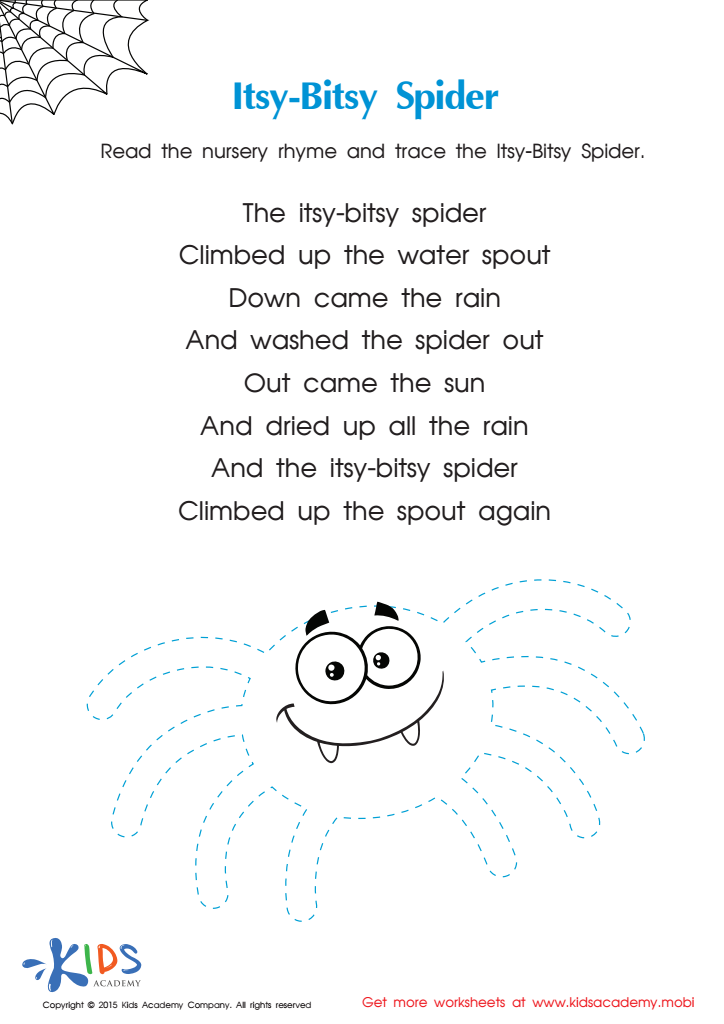

Itsy Bitsy Spider Nursery Rhyme PDF Worksheet
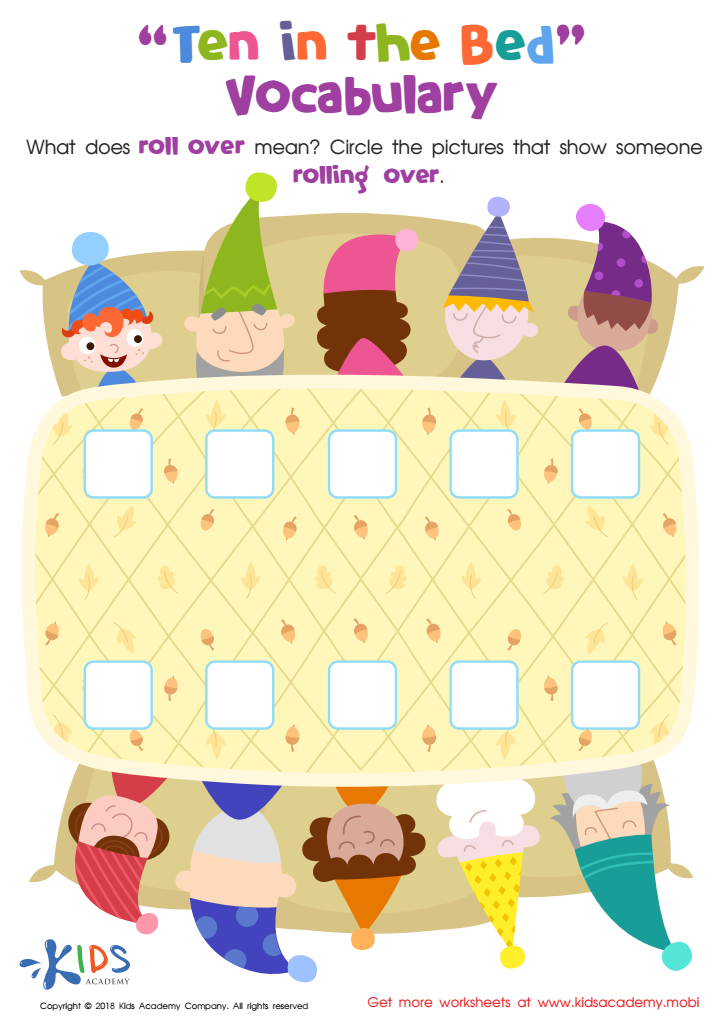

Ten in the Bed: Vocabulary Worksheet
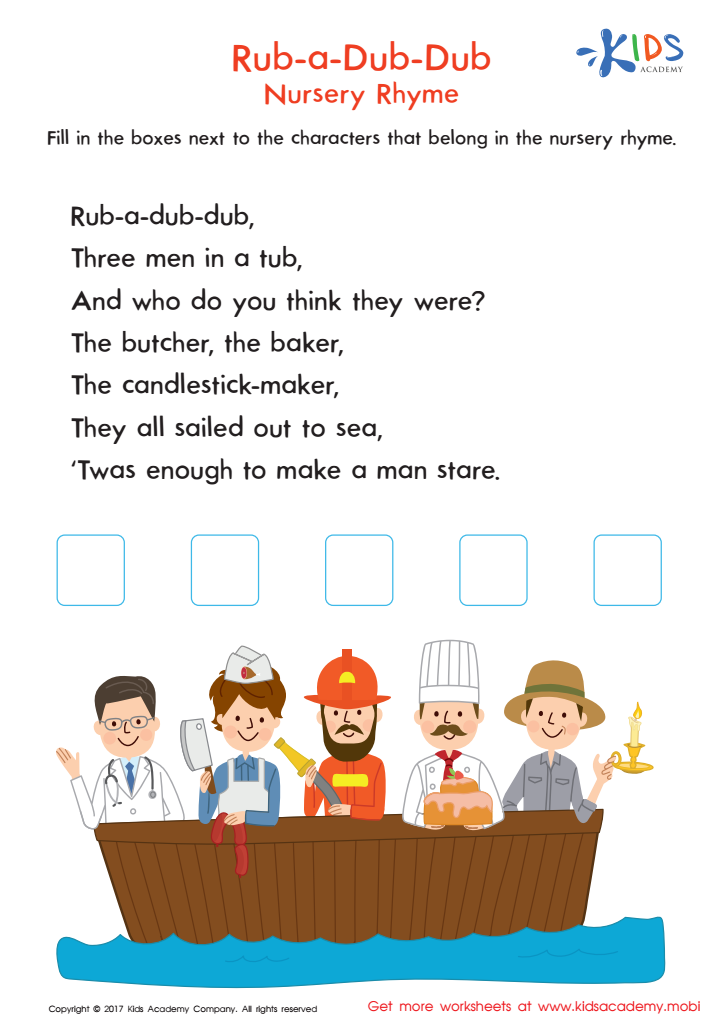

Rub a Dub Dub Printable
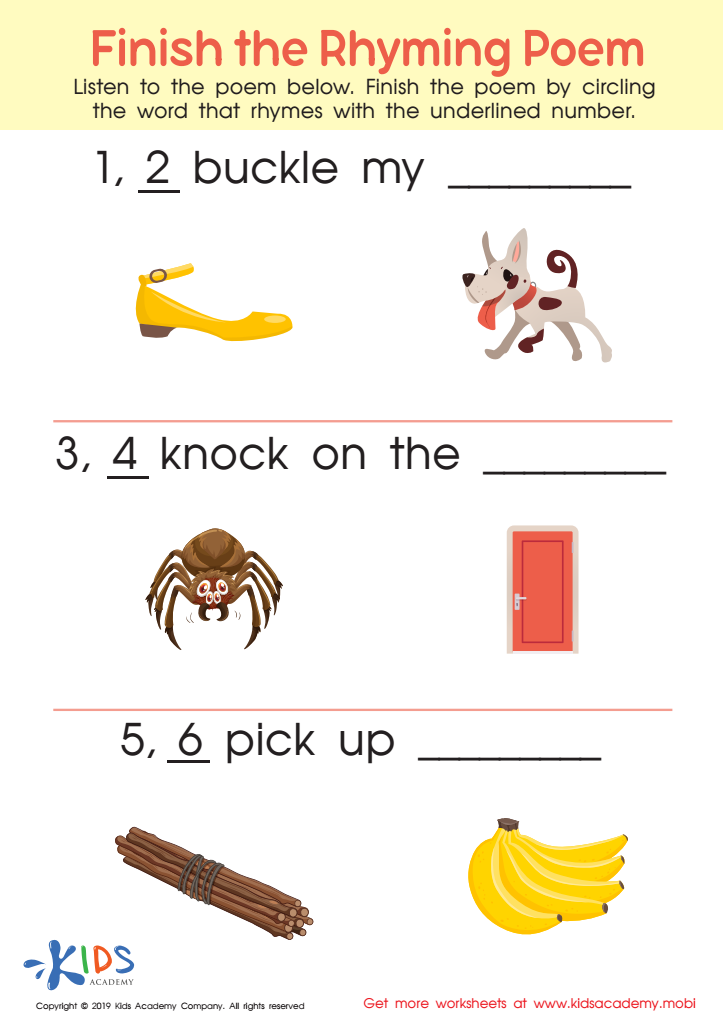

Finish Rhyming Poem Worksheet
Rhyming skills are crucial for early childhood development, particularly in the age group of 3-4 years. At this stage, children's brains are highly receptive to language acquisition, and rhyming significantly enhances this process. First and foremost, recognizing and producing rhyming words increase phonological awareness, a critical foundation for reading development. As children start to understand that words can have similar ending sounds, they begin to improve their ability to decode and spell new words.
Moreover, rhyming can make learning more engaging and enjoyable, fostering a love for books and stories. Fun activities like nursery rhymes, rhyming games, and songs captivate young minds, building a positive association with reading. This emotional bond with reading can motivate children to explore more complex literacy skills later on.
Additionally, rhyming strengthens vocabulary. Through exposure to varied words and their sounds, children expand their language use, pronunciation, and articulation. It also enhances memory and recall abilities as children learn to remember sequences of sounds and words.
In summary, rhyming skills form an essential part of early literacy development, providing a strong foundation in phonological awareness, vocabulary expansion, and fostering a lifelong love for reading. Parents and teachers should wholeheartedly incorporate rhyming activities to ensure robust early childhood language development.

 Assign to My Students
Assign to My Students





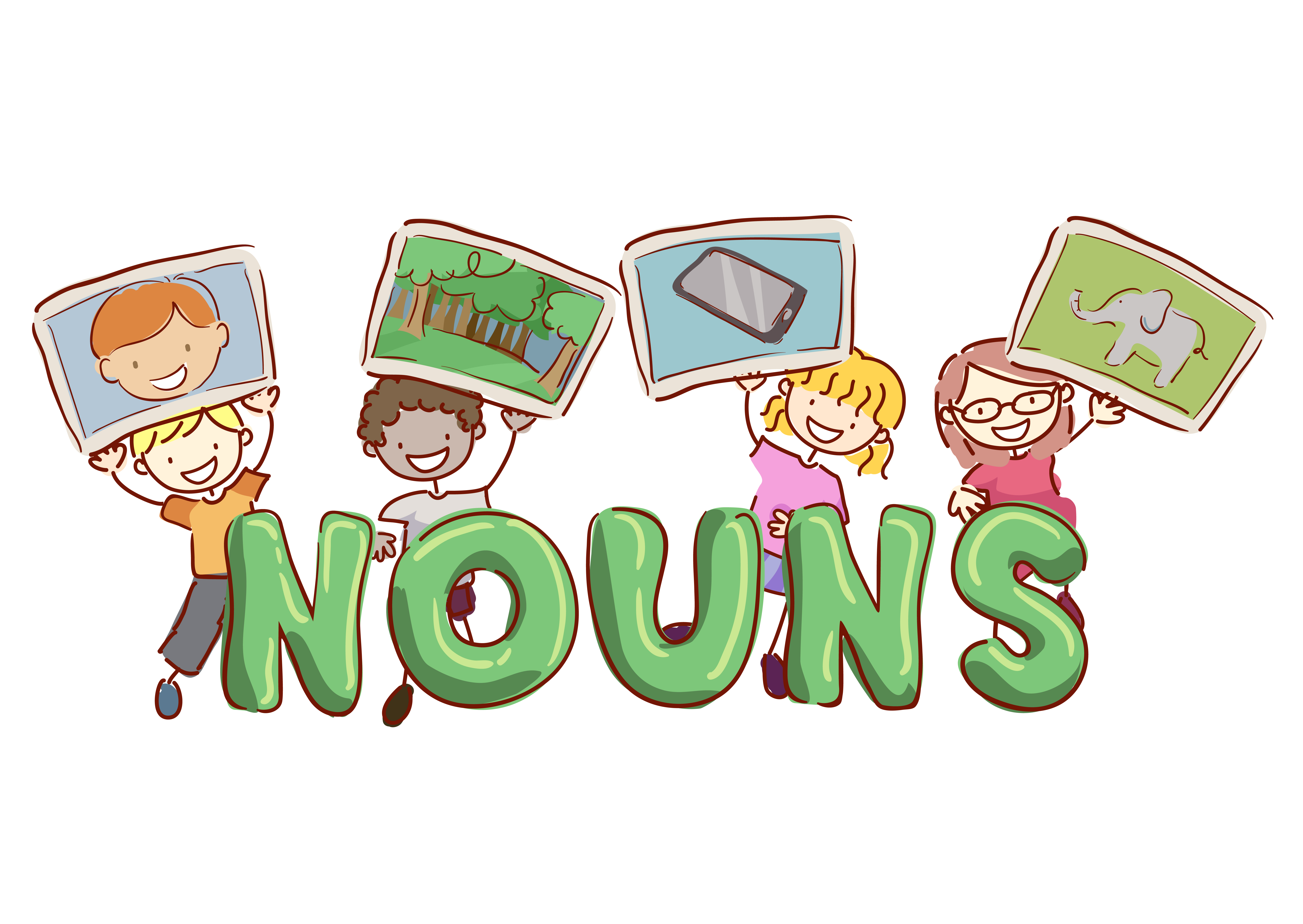

.jpg)












